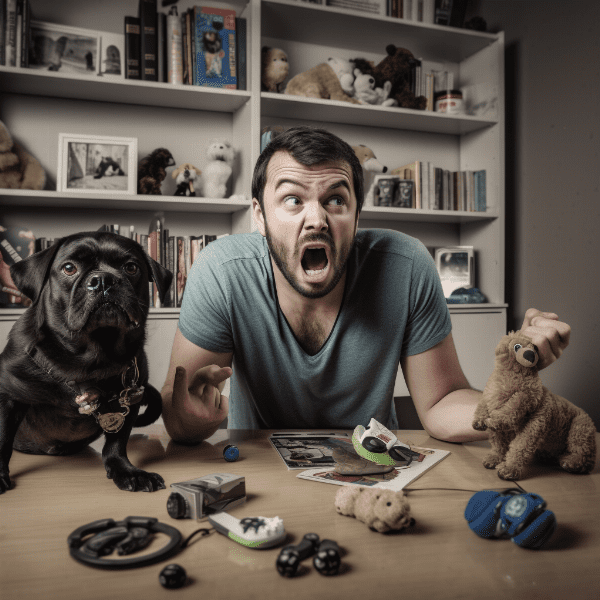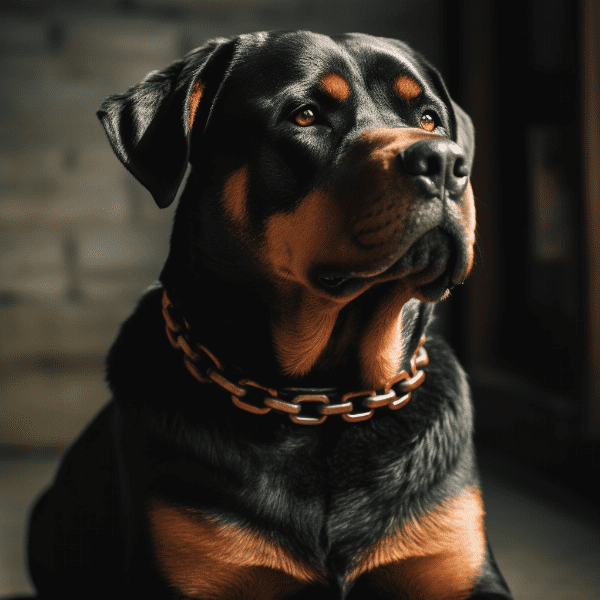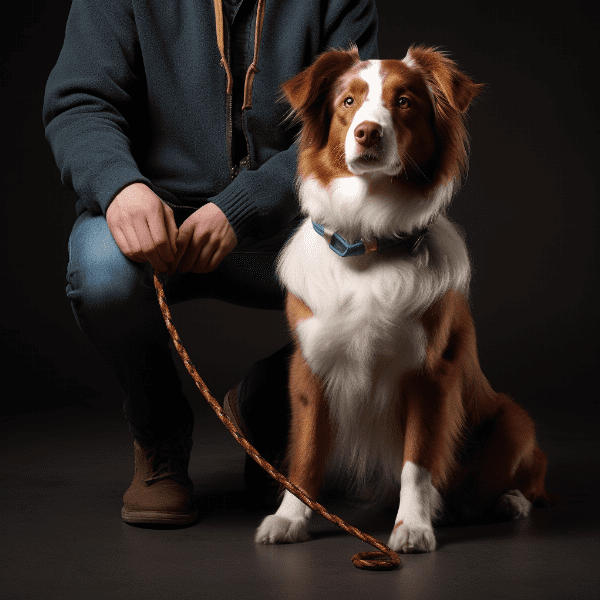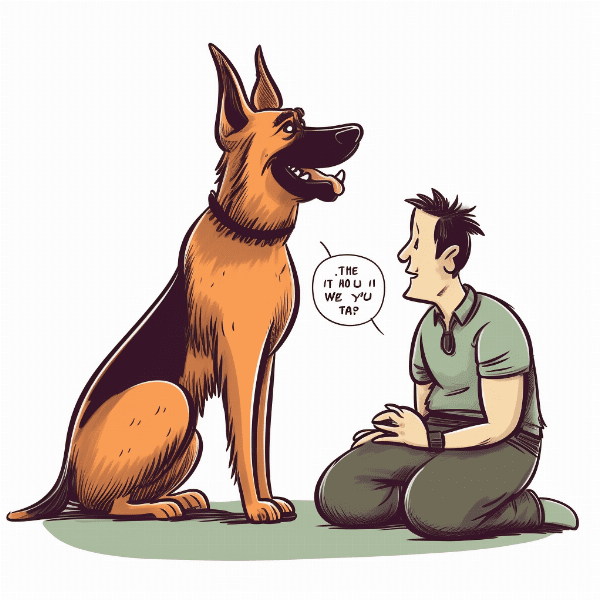Table of Contents
- Types of Puppy Aggression
- Causes of Puppy Aggression
- Recognizing the Signs of Puppy Aggression
- How to Manage Puppy Aggression: Tips and Techniques
- Positive Reinforcement Training for Aggressive Puppies
- Professional Help for Aggressive Puppies
- Preventing Puppy Aggression: Early Socialization and Training
- Understanding the Role of Breed in Puppy Aggression
- Managing Aggression Towards People: Safety Measures
- Living with an Aggressive Puppy: Coping Strategies for Owners
Types of Puppy Aggression
Puppy aggression can manifest in various forms, each with its own unique causes and triggers. Here are some common types of puppy aggression that you may encounter:
Fear-Based Aggression
Fear-based aggression in puppies is the most common type of aggression. It occurs when a puppy perceives a threat and responds aggressively in an attempt to protect itself. This type of aggression is often triggered by new and unfamiliar situations, people, or objects. Fear-based aggression may result in growling, barking, snarling, or even biting.
Territorial Aggression
Territorial aggression in puppies occurs when a puppy perceives a threat to its territory or resources. This can include their food, toys, bed, or even their owner. Puppies that exhibit territorial aggression may growl, bark, or bite when someone approaches their space or tries to take their belongings.
Dominance-Based Aggression
Dominance-based aggression in puppies occurs when a puppy tries to establish its dominance over other dogs or humans. This type of aggression can be exhibited through growling, snarling, or biting when the puppy feels challenged or disrespected.
Possessive Aggression
Possessive aggression in puppies occurs when a puppy is possessive of a particular item or person. This type of aggression can occur when a puppy feels threatened or challenged by another person or animal that tries to take away its possession or attention.
Redirected Aggression
Redirected aggression in puppies occurs when a puppy is unable to attack the source of its frustration and instead redirects its aggression towards another target, often a nearby person or animal. This type of aggression can occur when a puppy is prevented from reaching its intended target or when it becomes overstimulated.
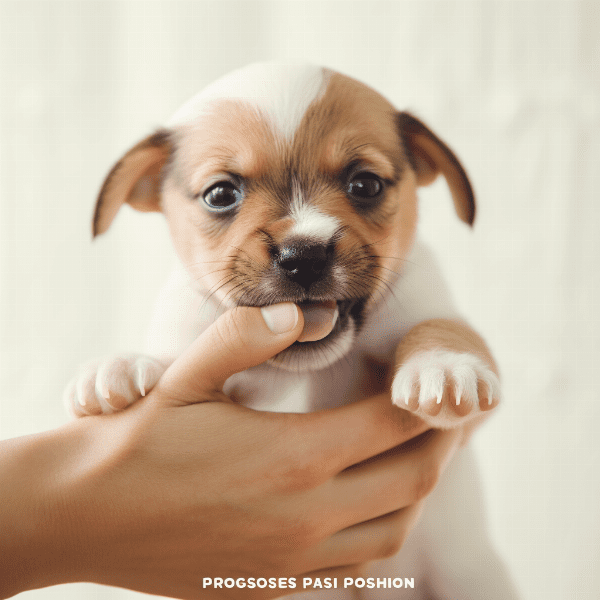
Causes of Puppy Aggression
Puppy aggression can be caused by various factors, including genetics, environment, and learned behavior. Here are some common causes of puppy aggression:
Lack of Socialization
Puppies that are not socialized properly may become fearful or aggressive towards people, animals, or unfamiliar situations. This is why it’s essential to expose puppies to a variety of experiences during their critical socialization period.
Fear and Anxiety
Fear and anxiety can trigger aggression in puppies, especially if they feel threatened or stressed. This can be due to various factors such as loud noises, unfamiliar surroundings, or separation anxiety.
Medical Issues
Medical issues, such as pain or illness, can cause puppies to become irritable or aggressive. If you notice sudden changes in your puppy’s behavior, it’s important to consult with your veterinarian to rule out any underlying medical issues.
Breed Tendencies
Certain breeds may have a genetic predisposition towards aggressive behavior, such as guard or hunting dogs. However, it’s important to note that breed tendencies do not determine a puppy’s behavior entirely and can be mitigated with proper training and socialization.
.
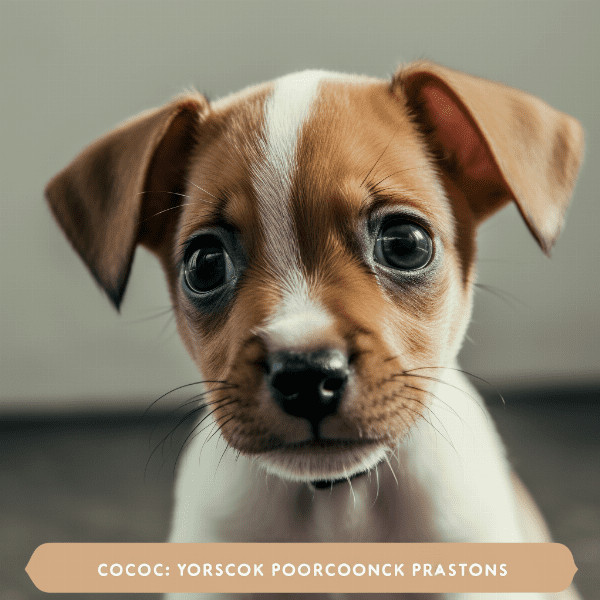
Recognizing the Signs of Puppy Aggression
It’s important to recognize the signs of puppy aggression early on to prevent any harm to yourself or others. Here are some common signs of puppy aggression to look out for:
Body Language
A puppy that is feeling aggressive may display certain body language cues, such as a stiff posture, raised hackles, or a tucked tail. They may also show their teeth, growl, or bark in a threatening manner.
Biting and Mouthing
Puppies that are aggressive may bite or mouth their owners, other people, or other animals. While this behavior is normal in young puppies who are teething, aggressive biting or mouthing is characterized by excessive force, growling, or refusal to release.
Growling and Snarling
Growling and snarling are common signs of aggression in puppies. These vocalizations may be accompanied by other aggressive behaviors such as lunging, snapping, or biting.
Resource Guarding
Puppies that are aggressive may also display resource guarding behaviors, such as growling or snapping when someone approaches their food bowl or toys. This behavior can also extend to people or areas that the puppy considers its territory.
Unpredictable Behavior
Puppies that display unpredictable behavior, such as sudden aggression towards familiar people or animals, should be closely monitored. This type of behavior can indicate underlying fear, anxiety, or other medical issues.
Recognizing the signs of puppy aggression is crucial in managing and preventing aggressive behavior. In the next section, we will discuss how to manage puppy aggression with tips and techniques.

How to Manage Puppy Aggression: Tips and Techniques
Managing puppy aggression requires patience, consistency, and a willingness to work with your puppy to overcome their aggressive behavior. Here are some tips and techniques for managing puppy aggression:
Identify Triggers
Identify the triggers that cause your puppy’s aggression and try to avoid them if possible. For example, if your puppy becomes aggressive towards other dogs, avoid dog parks or places where there are many dogs.
Socialization and Training
Socialization and training are essential in managing puppy aggression. Expose your puppy to different situations, people, and animals in a controlled environment, and use positive reinforcement training techniques to encourage good behavior.
Consistency and Boundaries
Establish consistent rules and boundaries for your puppy to follow. Use positive reinforcement to reward good behavior and discourage bad behavior.
Avoid Punishment-Based Training
Avoid using punishment-based training methods, such as hitting or yelling at your puppy, as this can encourage aggressive behavior.
Medication
In some cases, medication may be prescribed to help manage your puppy’s aggression. This should only be done under the guidance of a veterinarian.
Managing puppy aggression can be challenging, but with patience and consistency, it’s possible to overcome your puppy’s aggressive behavior. In the next section, we will discuss the benefits of positive reinforcement training for aggressive puppies.
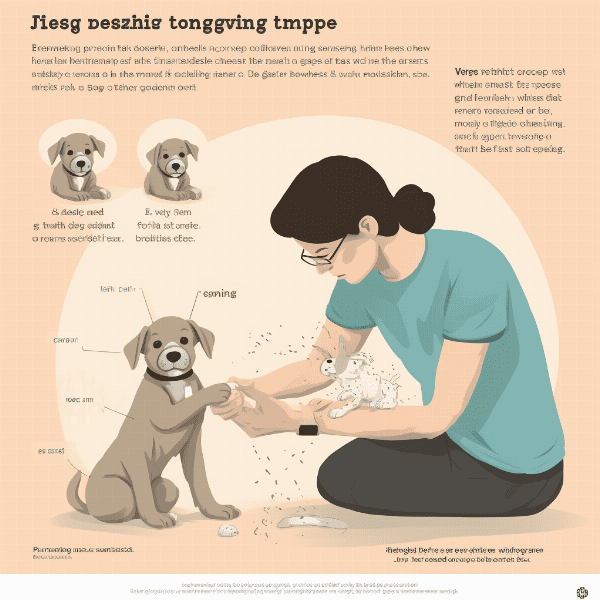
Positive Reinforcement Training for Aggressive Puppies
Positive reinforcement training is a proven method for managing puppy aggression. This training technique involves rewarding good behavior with treats, praise, or playtime, while ignoring or redirecting bad behavior. Here are some benefits of using positive reinforcement training for aggressive puppies:
Encourages Good Behavior
Positive reinforcement training encourages your puppy to exhibit good behavior by rewarding them for it. This can include behaviors such as sitting, staying, and coming when called.
Reduces Aggressive Behavior
Positive reinforcement training can help to reduce aggressive behavior in puppies by reinforcing good behavior and ignoring or redirecting bad behavior. This can include behaviors such as growling, biting, or resource guarding.
Tailored to Individual Needs
Positive reinforcement training can be tailored to your puppy’s individual needs and personality. This means that the training is customized to your puppy’s specific behavior issues and can be adjusted as needed.
Long-Lasting Results
Positive reinforcement training can produce long-lasting results, as it helps to create a positive association between good behavior and rewards. This means that your puppy is more likely to continue exhibiting good behavior in the future.
Positive reinforcement training is a powerful tool for managing puppy aggression. In the next section, we will discuss when to seek professional help for aggressive puppies.
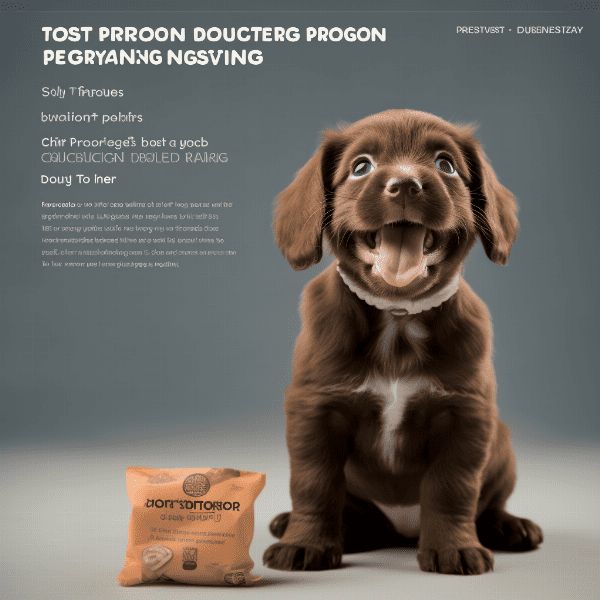
Professional Help for Aggressive Puppies
If your puppy’s aggression is severe or persistent, seeking professional help from a certified dog behaviorist or trainer may be necessary. Here are some reasons why you might need to seek professional help for your aggressive puppy:
Severe or Persistent Aggression
If your puppy’s aggression is severe or persistent, it may be a sign of an underlying medical issue or behavioral problem. A certified dog behaviorist or trainer can help to diagnose the underlying issue and provide you with tailored advice and techniques to manage your puppy’s aggression.
Lack of Progress with Training
If you have been trying to manage your puppy’s aggression on your own and have not seen any progress, seeking professional help may be necessary. A certified dog behaviorist or trainer can provide you with tailored advice and techniques to manage your puppy’s aggression and help you see progress.
Increased Stress or Anxiety
If managing your puppy’s aggression is causing increased stress or anxiety for you or your family, seeking professional help can help to alleviate this. A certified dog behaviorist or trainer can provide you with support and guidance to manage your puppy’s aggression and reduce stress and anxiety.
Professional help can be a valuable resource for managing puppy aggression. In the next section, we will discuss the importance of early socialization and training in preventing puppy aggression.
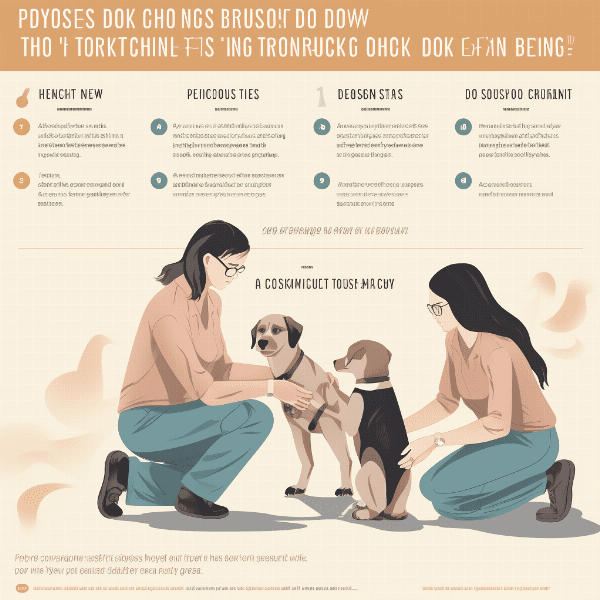
Preventing Puppy Aggression: Early Socialization and Training
Preventing puppy aggression is always preferable to managing it later on. Early socialization and training are essential in preventing puppy aggression. Here are some reasons why early socialization and training are so important:
Builds Positive Associations
Early socialization and training can help to build positive associations with people, animals, and new experiences. This can prevent fear and anxiety, which are common triggers for puppy aggression.
Develops Good Habits
Early socialization and training can help to develop good habits in puppies. This includes behaviors such as sitting, staying, and coming when called. These behaviors are essential for managing puppy aggression and preventing problem behavior later on.
Builds Confidence
Early socialization and training can help to build your puppy’s confidence. This can prevent fear and anxiety, which are common triggers for puppy aggression. A confident puppy is less likely to exhibit aggressive behavior.
Establishes Clear Boundaries
Early socialization and training can help to establish clear boundaries for your puppy to follow. This can prevent problem behavior and make it easier to manage any aggression that does occur.
Prevents Future Behavior Issues
Early socialization and training can prevent future behavior issues from developing. This includes problem behaviors such as separation anxiety, resource guarding, and territorial aggression.
Early socialization and training are essential in preventing puppy aggression. By establishing positive associations, developing good habits, building confidence, and establishing clear boundaries, you can help to prevent problem behavior later on. In the next section, we will discuss the role of breed in puppy aggression.
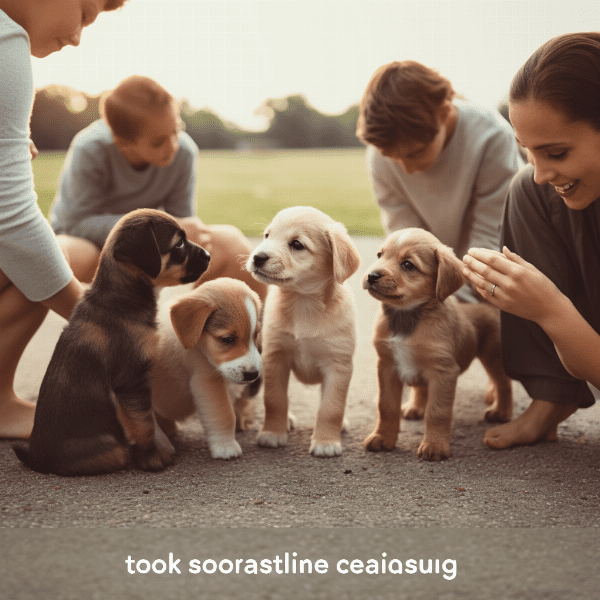
Understanding the Role of Breed in Puppy Aggression
There is a common misconception that certain dog breeds are more aggressive than others. While it is true that some breeds may have a genetic predisposition towards certain behaviors, such as hunting or guarding, it’s important to understand that a dog’s behavior is not entirely determined by its breed. Here are some factors to consider when understanding the role of breed in puppy aggression:
Genetics
Some breeds may have a genetic predisposition towards certain behaviors, such as aggression or anxiety. However, it’s important to remember that genetics are only one factor that can influence a dog’s behavior.
Environment
A dog’s environment can have a significant impact on its behavior, regardless of its breed. Factors such as socialization, training, and the owner’s behavior can all influence a dog’s behavior.
Individual Personality
Just like people, dogs have individual personalities that can vary greatly within a breed. While some breeds may have a reputation for being aggressive, it’s important to remember that not all dogs within that breed will exhibit aggressive behavior.
Owner Behavior
The owner’s behavior can have a significant impact on a dog’s behavior, regardless of its breed. Neglect, abuse, and inconsistent training can all contribute to aggressive behavior in dogs.
Understanding the role of breed in puppy aggression is important, but it’s equally important to remember that a dog’s behavior is influenced by many factors. By providing proper socialization, training, and a loving and consistent environment, you can help to prevent puppy aggression, regardless of your dog’s breed. In the next section, we will discuss safety measures to take when managing aggression towards people.
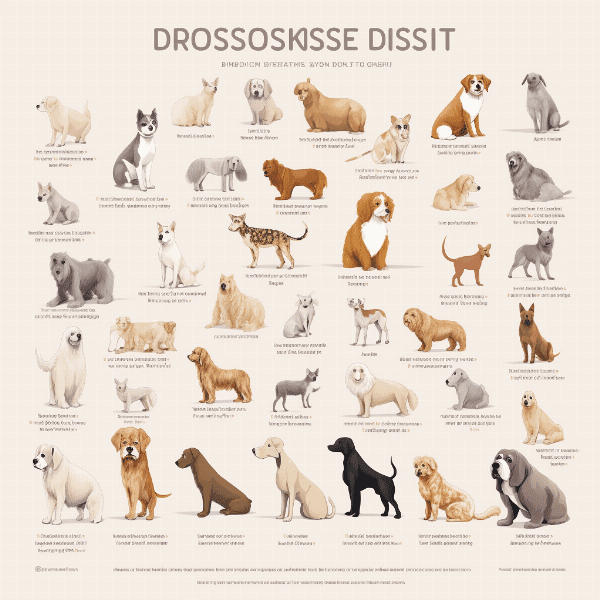
Managing Aggression Towards People: Safety Measures
Aggression towards people can be dangerous and should be managed carefully. Here are some safety measures to take when managing aggression towards people:
Use a Leash and Muzzle
If your puppy is aggressive towards people, use a leash and muzzle to prevent any potential harm. This will also help to keep you and your puppy safe.
Avoid Triggers
Identify the triggers that cause your puppy’s aggression towards people and avoid them if possible. This could include avoiding situations where there are many people, or avoiding certain types of people, such as children or strangers.
Warn Others
Warn others of your puppy’s aggression towards people, especially if you are in a public place. This will help to prevent any potential harm to others.
Never Punish Aggressive Behavior
Avoid punishing your puppy for aggressive behavior towards people. Punishment can escalate the aggression and can also damage the bond between you and your puppy.
Managing aggression towards people requires careful consideration and attention to safety. By using a leash and muzzle, avoiding triggers, warning others, seeking professional help, and avoiding punishment, you can help to manage your puppy’s aggression towards people and prevent any potential harm.
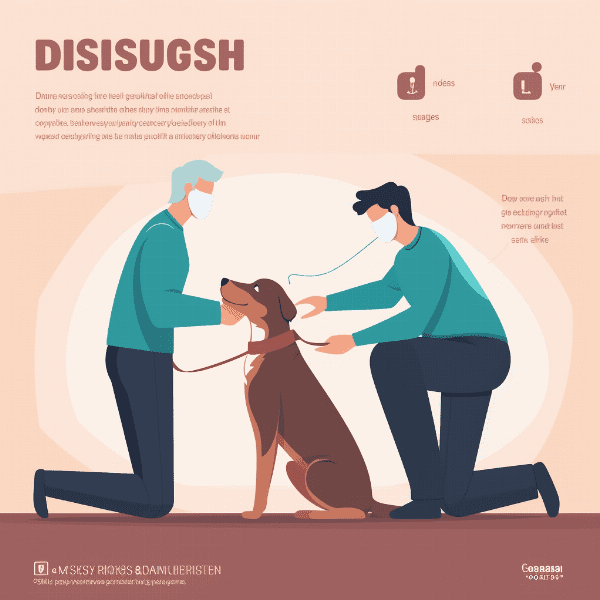
Living with an Aggressive Puppy: Coping Strategies for Owners
Living with an aggressive puppy can be challenging and stressful. Here are some coping strategies for owners of aggressive puppies:
Seek Professional Help
Seeking professional help from a certified dog behaviorist or trainer is crucial in managing and preventing aggressive behavior in puppies. A professional can provide you with tailored advice and techniques to manage your puppy’s aggression and help you cope with the stress.
Practice Self-Care
Caring for an aggressive puppy can be stressful, so it’s important to practice self-care. This could include exercising, meditating, or spending time with friends and family.
Set Realistic Goals
Setting realistic goals for managing your puppy’s aggression can help to reduce stress and make the process more manageable. Break down larger goals into smaller, achievable steps.
Build a Support Network
Building a support network of friends, family, and other puppy owners can help to provide you with emotional support and practical advice. Consider joining a support group for owners of aggressive puppies.
Be Patient and Consistent
Managing puppy aggression requires patience and consistency. Be patient with your puppy and consistent in your training and management techniques.
Celebrate Successes
Celebrate your puppy’s successes, no matter how small. This can help to keep you motivated and positive during the process of managing their aggression.
Living with an aggressive puppy can be challenging, but with the right coping strategies and support, it’s possible to manage their aggression and prevent harm to yourself and others.
